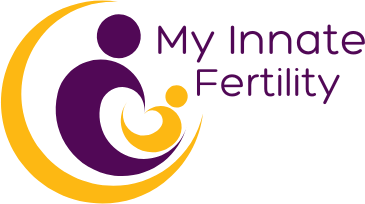Navigating the path to parenthood can become increasingly complex as we age, with fertility after 40 presenting unique challenges and concerns. At My Innate Fertility, we understand the nuances of conceiving later in life and are committed to supporting individuals and couples through this journey. This blog explores the challenges associated with fertility after 40 and provides strategies for maintaining a positive outlook throughout the process.

Understanding Fertility After 40
Fertility naturally declines as we age, with significant changes noted after the age of 40. For women, this is often due to a decrease in the quantity and quality of eggs, while men might experience changes in sperm quality. Despite these challenges, many couples successfully conceive, thanks to advances in fertility treatments and a deeper understanding of reproductive health.
The Biological Clock and Fertility
The concept of the “biological clock” isn’t just a cultural reference—it’s a reality that affects egg and sperm quality as we age. Understanding how this impacts fertility can help set realistic expectations and guide decisions regarding family planning.
The Role of Medical Interventions
Medical interventions such as in vitro fertilization (IVF), egg freezing, and donor eggs have become more prevalent and successful, offering hope to those trying to conceive after 40. These technologies can significantly enhance the chances of a successful pregnancy.

Challenges of Fertility After 40
While the journey to conception can be more demanding after 40, recognizing the challenges can help you navigate them more effectively.
Increased Health Risks
Pregnancies after 40 are often considered high-risk, with increased chances of conditions like gestational diabetes, hypertension, and complications during delivery. Regular monitoring and specialized care throughout the pregnancy can help manage these risks.
Emotional and Psychological Impact
The emotional and psychological impact of trying to conceive after 40 can be substantial. Coping with societal pressures, previous infertility struggles, or miscarriages can take a toll. It’s essential to seek support and utilize resources to manage these stresses effectively.
Staying Positive While Navigating Fertility After 40

Maintaining a positive outlook is crucial when facing the challenges of fertility after 40. Here are some strategies to help stay optimistic and proactive:
Building a Support Network
Creating a strong support network of family, friends, healthcare providers, and possibly a fertility counselor can provide emotional backing and practical advice. Support groups and forums can also offer comfort and camaraderie from those in similar situations.
Focusing on Overall Health and Wellness
Improving overall health through diet, exercise, and stress reduction techniques can not only enhance fertility but also improve your quality of life, regardless of the outcome. Holistic practices like yoga and meditation can also contribute to a healthier body and mind.
Celebrating Small Victories
Every step forward on this journey is a victory—whether it’s a successful ovulation cycle, a positive response to fertility treatments, or simply maintaining your commitment to your emotional health. Celebrating these milestones can help maintain a positive outlook.
Fertility After 40: A Journey of Hope and Resilience
At My Innate Fertility, we believe that fertility after 40 is a journey of hope and resilience. While it may come with its set of challenges, the possibilities of modern medicine and the strength of personal determination make achieving your dream of parenthood a realistic goal. If you are navigating fertility after 40, we are here to support you with comprehensive fertility solutions and a compassionate approach. Contact us today to discuss how we can assist you in your unique fertility journey.

